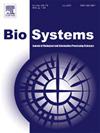Dreams as a code language
IF 1.9
4区 生物学
Q2 BIOLOGY
引用次数: 0
Abstract
Since Freud, psychologists have sought to decipher the language of dreams, but no universal interpretive manual exists. Advances in dream neuroscience and the emergence of Code Biology have brought us closer to understanding the rules and functions underlying dream formation. Code Biology, which studies coding processes in living systems, offers a revolutionary framework for how neural and symbolic patterns generate dream narratives. Dreams are not epiphenomena; they serve crucial adaptive functions—emotional regulation, memory consolidation, and ego development. Despite energetic costs, their evolutionary conservation across species highlights their biological necessity. Cartwright's studies confirm dreams' essential regulatory role in survival.
This article argues that dreams are coded artifacts produced by multiple organic codes—biological, neuronal, symbolic, and cultural—mediated by archetypes. Drawing on Barbieri's, Major's and Goodwyn work, archetypes are reframed as artifacts of embodied organic codes regulating dream formation and symbolic imagery. Integrating affective neuroscience findings and Jung's theory, this perspective proposes emotional affects as archetypal neurodynamic patterns. A key methodological gap remains: the separation of neuroscience and clinical practice. Through clinical dream analysis, the article shows therapists act as “adaptors,” translating dream codes into meaningful narratives—a process termed psychic codepoiesis. Finally, it discusses how Large Language Models, trained on life-coding principles, may support but not replace embodied human adaptors, offering a new paradigm for understanding dreams as the foundational language of subjective life.
梦是一种代码语言。
自弗洛伊德以来,心理学家一直试图破译梦的语言,但没有通用的解释手册。梦神经科学的进步和密码生物学的出现使我们更接近于理解梦形成的规则和功能。编码生物学,研究生命系统中的编码过程,为神经和符号模式如何产生梦境叙述提供了一个革命性的框架。梦不是偶然现象;它们具有重要的适应性功能——情绪调节、记忆巩固和自我发展。尽管耗费了能量,但它们在物种间的进化守恒凸显了它们的生物学必要性。卡特赖特的研究证实了梦对生存的重要调节作用。本文认为梦是由多种有机代码——生物的、神经的、符号的和文化的——以原型为媒介产生的编码产物。借鉴Barbieri、Major和Goodwyn的作品,原型被重新定义为调节梦的形成和象征意象的具体有机代码的人工制品。结合情感神经科学的发现和荣格的理论,这种观点提出情绪影响是原型神经动力学模式。一个关键的方法论差距仍然存在:神经科学和临床实践的分离。通过临床梦境分析,这篇文章表明治疗师扮演着“改编者”的角色,将梦境代码翻译成有意义的叙述——这一过程被称为精神编码。最后,本文讨论了基于生活编码原则的大型语言模型如何支持但不能取代具体的人类适配器,为理解梦作为主观生活的基础语言提供了一个新的范式。
本文章由计算机程序翻译,如有差异,请以英文原文为准。
求助全文
约1分钟内获得全文
求助全文
来源期刊

Biosystems
生物-生物学
CiteScore
3.70
自引率
18.80%
发文量
129
审稿时长
34 days
期刊介绍:
BioSystems encourages experimental, computational, and theoretical articles that link biology, evolutionary thinking, and the information processing sciences. The link areas form a circle that encompasses the fundamental nature of biological information processing, computational modeling of complex biological systems, evolutionary models of computation, the application of biological principles to the design of novel computing systems, and the use of biomolecular materials to synthesize artificial systems that capture essential principles of natural biological information processing.
 求助内容:
求助内容: 应助结果提醒方式:
应助结果提醒方式:


